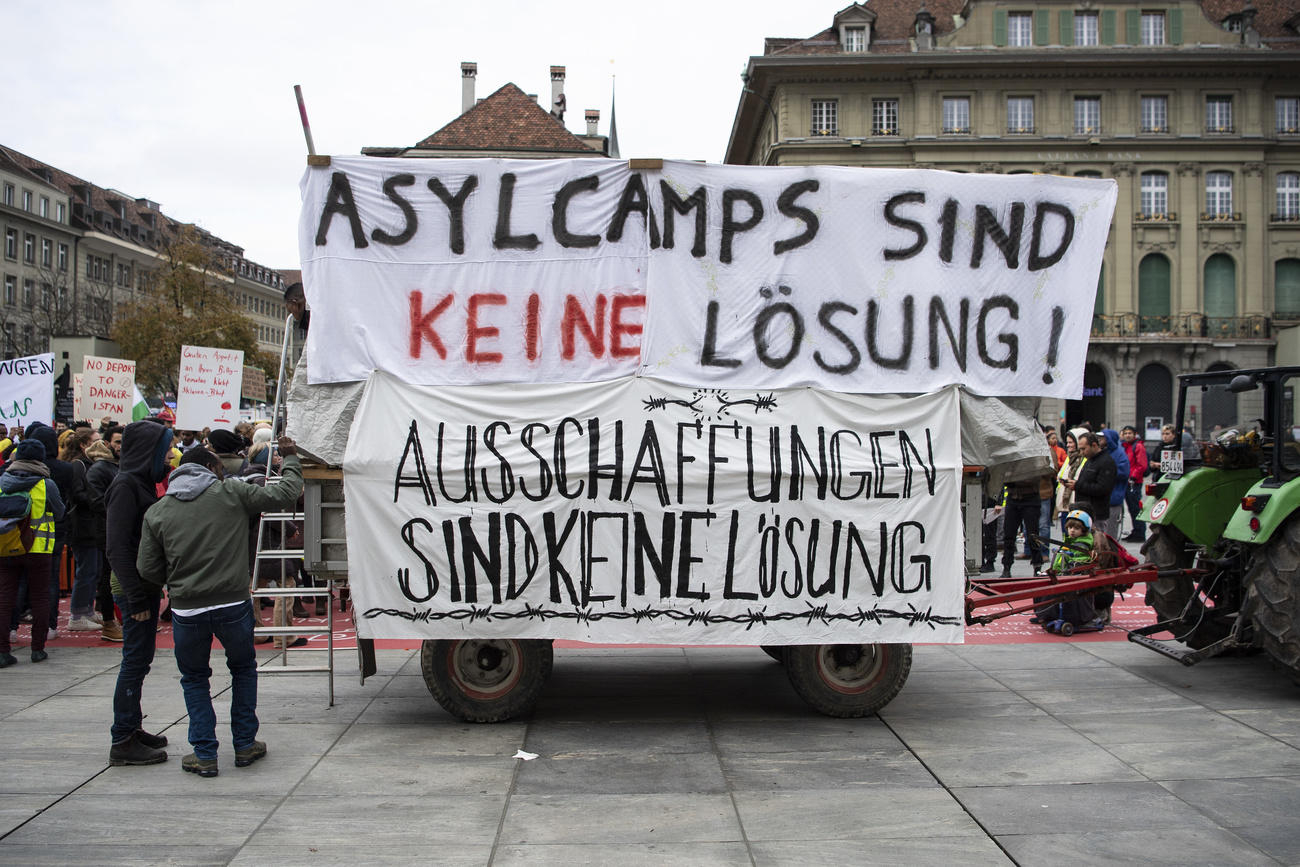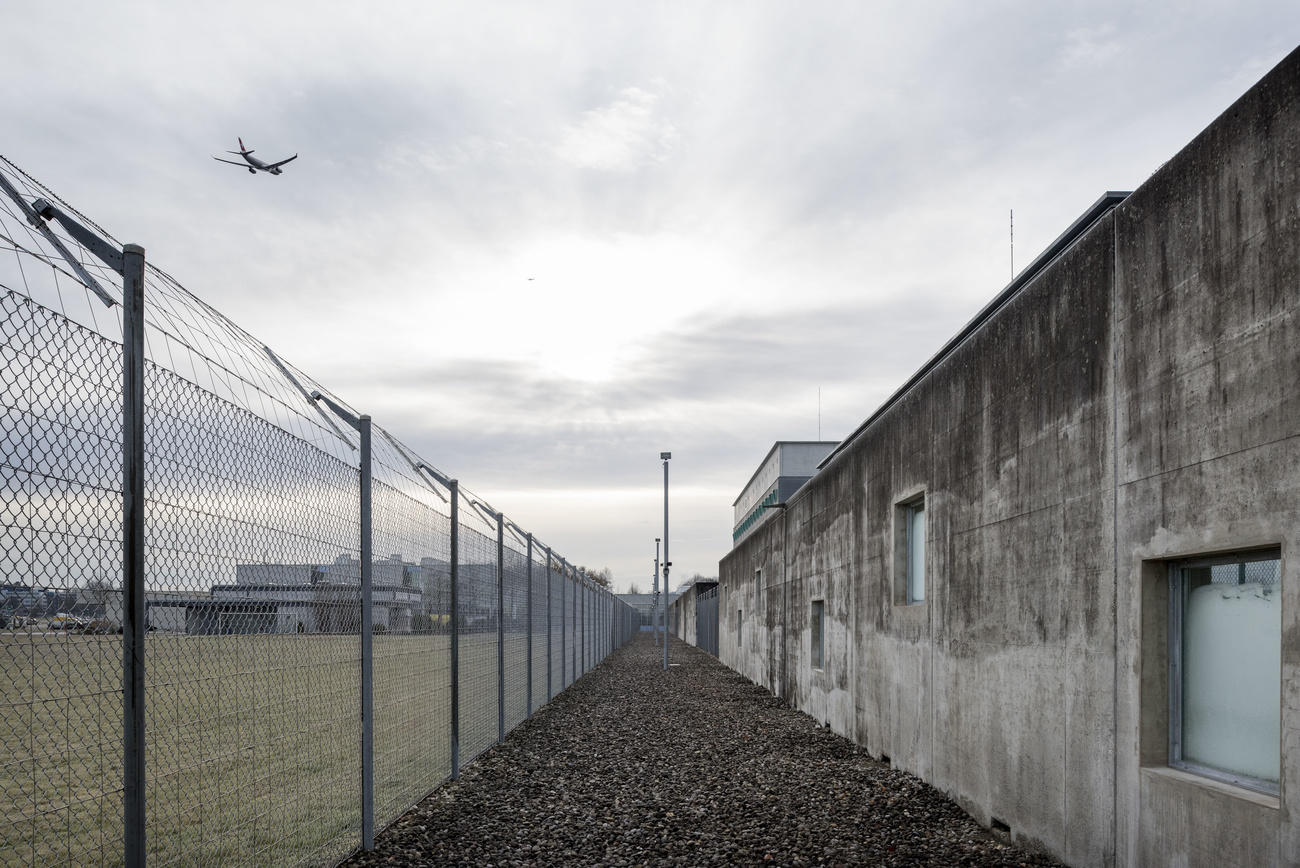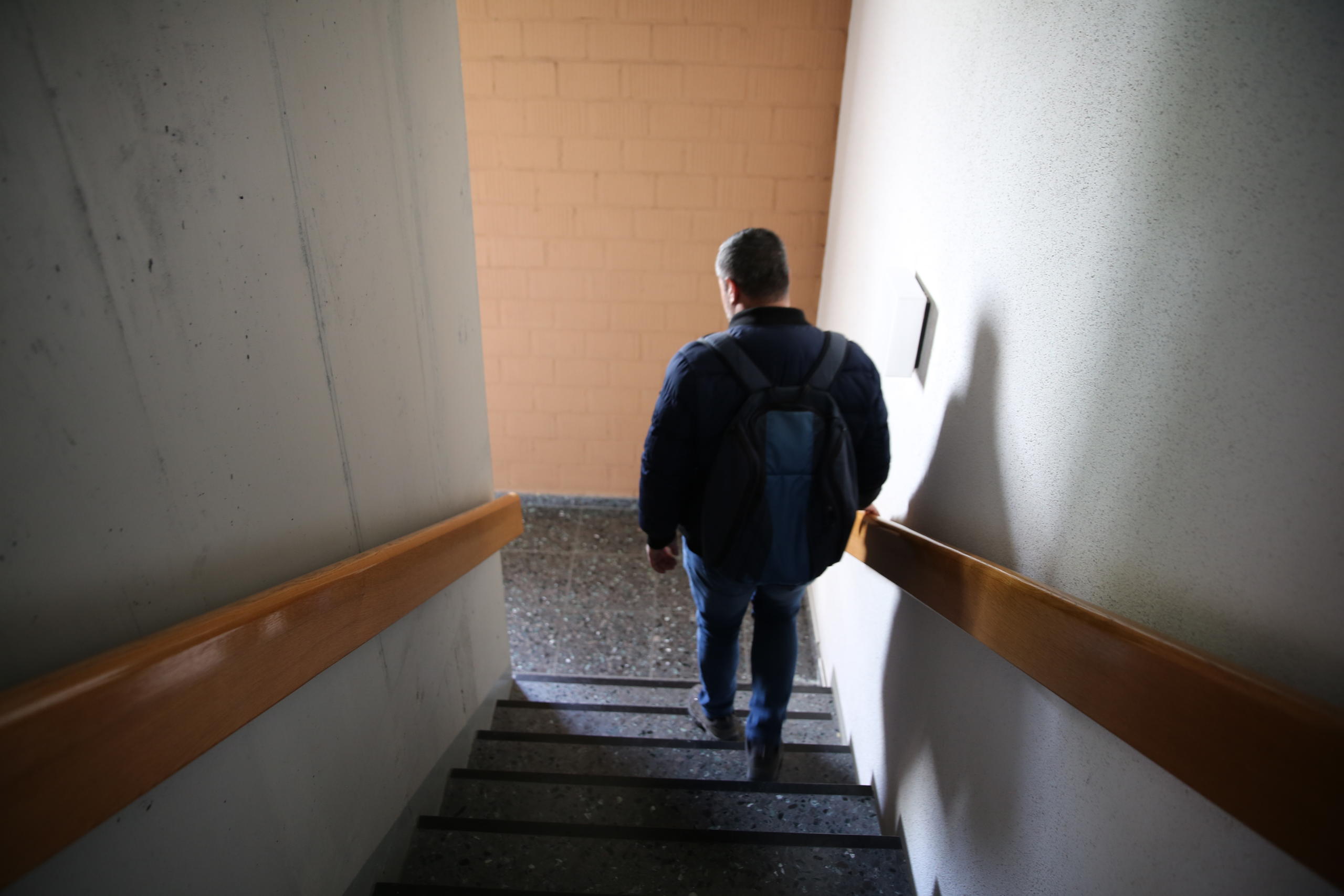
Refugees and Swiss supporters denounce asylum camp conditions

Hundreds of demonstrators gathered in the Swiss capital on Saturday to call for better conditions for refugees and asylum seekers.
The rally kicked off at Bern’s Bundesplatz and drew about 700 refugees and their Swiss supporters, according to news agency Keystone-SDA.
The demonstration was organised by the Migrant Solidarity Network External linkunder the banner “Asylum camps are not a solution.”
The activist network, which aims to amplify the voices of refugees at the political level, denounced conditions in militia-run detention camps in Libya – a launching pad for migrants trying to reach the shores of Europe. It also singled out the situation of refugees in Greece – a gateway for refugees coming from Turkey and beyond.
Tight controls, deteriorating conditions
On the domestic front, the demonstration aimed to call attention to problems with asylum camps at the federal and cantonal level. “Federal asylum camps are organized like prisons,” said the network in a statement. “Hundreds of people live in confined spaces without any privacy. The obligation to be present in the camp robs people of their freedom.”
The Bern-based network also criticised how people are filmed, controlled and surveilled at federal centers. It decried the limits to access for visitors, including human rights organisations.
If Swiss federal authorities do not reach an asylum decision within the mandated period of 140 days, the person is then transferred to a cantonal camp to wait.
According to the pro-migrant network, conditions are deteriorating in cantonal camps and protracted stays are resulting in mental and physical illness.
“Many are frustrated, traumatised or become aggressive,” noted the statement.
New rules on asylum procedures came into force in Switzerland earlier this year with the central aim of providing faster decisions on such cases.
In 2015, asylum proceedings lasted an average of 280 days. The target of federal authorities is to reach a decision in 140 days.
Saturday’s demonstration had been approved by the city of Bern.

More
Despite criticism, Switzerland continues to incarcerate minors

More
Tale of Swiss-based Syrian torture survivor highlights Dublin flaws

In compliance with the JTI standards
More: SWI swissinfo.ch certified by the Journalism Trust Initiative




























You can find an overview of ongoing debates with our journalists here . Please join us!
If you want to start a conversation about a topic raised in this article or want to report factual errors, email us at english@swissinfo.ch.